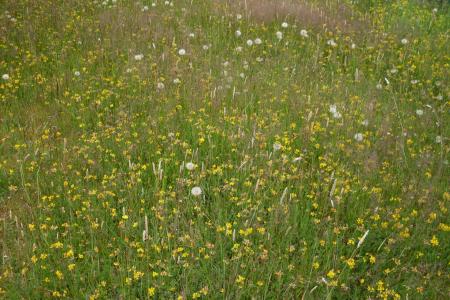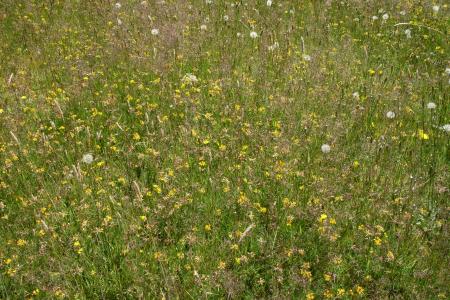Stop mowing: save life
Not only is the smell of freshly cut grass a signal of the grass's distress, but grass also releases this scent to call in help to resist insect attacks. [1][2] If you recognise this as the action of a life form that perceives what is going on around it and cares about its own survival, then you are not alone (the case for plant sentience in general is made on a previous page). The blades of a mower or slasher wreak devastation upon this feeling being, and not only upon this one, but also upon the life which makes the grass its home or which travels through it: insects and spiders especially are both slaughtered directly by the blades/cords of a mower/slasher, and killed or harmed indirectly through being deprived of habitat and food. A grassy backyard is a small, but precious, ecosystem. Slashing it is an act of vandalism.
And for what? Mostly, just appearances. Our taste for this appearance though is conditioned and can be changed. The photographs below are of my unmown lawn in the summer of 2013. To me, this is a spectacle of beauty. It is also appealing to bees: there were so many of them in these shots that their humming was audible. Why constrain life when you could allow it to express itself so verdantly?
Four possible answers to this question and my responses can be found on the objections and responses page for this section of the site:
[1] http://io9.com/5623112/the-smell-of-freshly-cut-grass-is-actually-a-plant-distress-call.
[2] http://today.agrilife.org/2014/09/22/mown-grass-smell-sends-sos-for-help-in-resisting-insect-attacks-researchers-say/.
Next: objections and responses
The next page, Objections and responses to the harm avoidance principle, lists various objections to the harm avoidance principle and to the ramifications of it that I've listed on the page, Respecting the non-human life of our planet. It also contains my responses to those objections.



